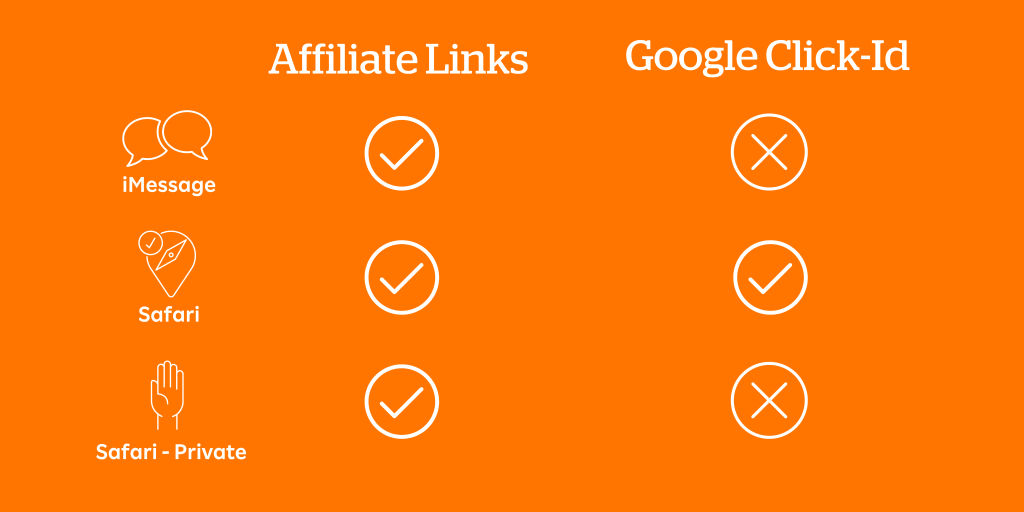Surviving iOS 17: Your Guide to Cookieless Tracking and Affiliate Marketing
The forthcoming iOS updates are going to bring major shifts to the affiliate marketing industry. Learn everything you need to know to navigate iOS 17 and MacOS Sonoma, complete with actionable insights from test scenarios.

iOS 17 and MacOS Sonoma are about to hit, and they’re game-changers for affiliate marketing. With heightened privacy features that strip link trackers, you can’t afford to be unprepared. Here’s what you need to know.
While there are many unknowns about the impact these updates will have on advertising, the good news is that affiliate marketing is well-positioned to navigate any challenges. Our tests show affiliate tracking remains robust despite the new updates. Specifically, affiliate parameters are untouched in iMessage and both modes of Safari. This means your existing Rakuten Advertising campaigns are set to continue performing well.
Test Scenarios
Using Google Ad Links as a control, the test scenarios we ran showed:

To demystify these changes, we tapped into the expertise of Rakuten Advertising’s own specialist to take us back to basics.
First-party vs. Third-party cookies:
In simple terms, first-party cookies are your home turf; they track user behaviour on your own site. Think of them as your site’s memory – keeping items in a shopping cart, for instance. Third-party cookies, on the other hand, follow users across different sites. They’re the ones you need for broader tracking, like seeing how a customer interacts with your ads on other platforms.
What’s changing in the world of tracking
Cookieless tracking:
Cookieless tracking is the gradual decline of browser support for third-party cookies. The industry started to see changes to cookieless tracking in 2017 when Apple began implementing their Safari Intelligent Tracking Prevention technology (ITP). Firefox followed in 2018 with its Enhanced Tracking Protection (ETP), and Microsoft released Edge Tracking Prevention in 2019. Looking to the future, Google has announced that Chrome will block third-party cookies in 2024.
First-party data is vital for advertisers in mitigating the challenges cookieless tracking presents. The existing methods don’t block server-side data. What can you do? Prioritise first-party data and consider server-side integrations with Rakuten Advertising for continued high performance, an update compatible with EWS and Performance Tag Solutions.
Rakuten Advertising’s Director of Product Management said, “We have various integration options to suit your (or clients’) specific tracking needs. The majority of companies are now leaning into server-side integrations for more customisation and functionality to fit their needs.”
App Tracking Transparency
In addition to the iOS 17 changes, App Developers must continue adhering to the App Tracking Transparency (ATT) framework released in 2021. Through ATT, Apple requires App developers to list data they use to track users, an update that applies to SDKs used by the app.
It’s important to note that we’ve seen little to no impact for publishes that drive traffic from their app to a brand’s mobile site (either directly or within their app via a web view). And while some users have opted out of being tracked, for brands with in-app tracking enabled, you’ll capture the full activity of those who have opted in, giving you richer performance insights.
There are several options available for enabling affiliate tracking within an advertiser’s app:
- Leverage integrations with 3rd party SDKs
- Implement the Rakuten SDK
- Implement EWS-like tracking with the advertiser’s app
Gain the Competitive Advantage
Preparation is your edge in this evolving landscape of cookieless tracking and privacy rules. Arm your brand with robust tracking solutions to tackle challenges head-on. For more, visit rakutenadvertising.com or speak to your account rep.


